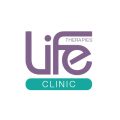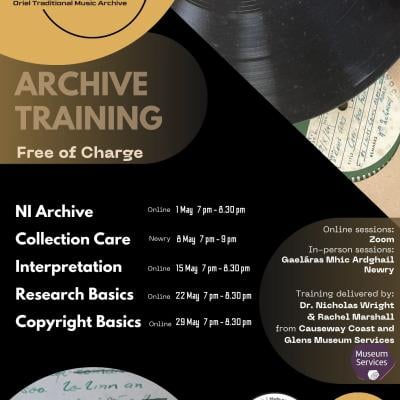Food and Mood for Counsellors and Therapists - 14th & 15th November, 2015

Life Therapies Clinic and Professional Training
Do you work in a mental or public health setting with clients or patients who have been on long term pharmaceutical support for anxiety, depression or other mental health issues?
This course is taught largely from the front & draws from the latest thinking in eating disordered clinical research, evidence based treatments, coaching, health & counselling psychology.
Suitability: The course is suitable for counsellors, psychologists, psychotherapists, doctors, nutritionists, nurses, social workers, personal fitness trainers & other health professionals working with mental health, nutrition or disordered eating.
We also offer this course as corporate training and are happy to work with organisations who wish to develop these skills. We welcome enquiries from companies seeking in house training and offer discount for groups.
Do you work in a mental or public health setting with clients or patients who have been on long term pharmaceutical support for anxiety, depression or other mental health issues?
A new client is describing an array of distressing circumstances with symptoms that include high anxiety, panic, racing thoughts, irritability and sleeplessness.
As therapists or mental health practitioners seeking to understand this person’s presentation and provide appropriate support, what factors might we consider as we listen to this information?
Stress-related factors – problematic relationships or a demanding work life, young children or financial worries – might be significant.
The client might also hold unrealistic expectations of herself (or himself) and those around her. She/he may be struggling with negative automatic thoughts and unhelpful core beliefs or conditions of worth.
These emotional and social factors are of obvious interest to us as psychological therapists, mental health practitioners, occupational therapists, G.Ps or practice nurses, but how often do you think to explore your clients’ or patients’ diets?
What we eat is well evidenced to affect how we feel: psychology and physiology are indissolubly linked.
While few therapists or other mental health practitioners will have the necessary training to offer in-depth advice, you can signpost clients to information and resources that will compliment and support a fully holistic recovery process.
Changing to a more healthy diet does not have to involve consultations with a nutritionist and expensive food supplements: simple strategies such as drinking more water, reducing caffeine/sugar intake and understanding the impact of certain foods and eating behaviours on your mood can be adopted by anyone, regardless of income.
Health and mental health practitioners may also need to explore their own reluctance to engage with issues around food and diet.
This workshop seeks to explore the biological and physiological processes at work that may be caused by the client’s dietary habits.
On this 2 day workshop you will learn;
- The role of nutrition and the link to mood disorders
- Essential neurotransmitters and nutritional deficiencies
- The physiological and psychological impact of stress and nutritional deficiencies.
- Adrenal and thyroid function
- The effects of under-eating
- Sugar and the brain
- Candida, gluten intolerance and the link to mental health
- How to recognise when your client has an eating disorder and what to do about it
- How to assess the link to depression, generalised anxiety disorders, panic attacks, addictions and fibromyalgia as nutritional imbalances
- Food and mood diaries as a therapeutic and motivational tool
- How an exploration of a client’s food and eating patterns can be integrated into a therapy or practice session
- How to consider the impact of a client’s lifestyle on body, mind and emotion as the standard approach to therapy
- How to engage and enable clients to make informed choices about their ongoing self-care and mental wellbeing
- How blood sugars affect mood and energy and how this can be effectively managed through what and how we eat
- How our thoughts, feelings and behaviour are all affected by our brain chemistry and can be influenced by food
- The pathway to serotonin the feel good chemical how it is produced and what is needed to enhance it through the use of food
- The role of anti nutrients such as caffeine, sugar and artificial products and how they rob the body of valuable building blocks that effect mood
- Food as medicine
- Good nutrition how getting your vitamins, minerals and essential fatty acids are all essential to mood
- The role of super foods in the body and health benefits of 160 super-foods
- The 2nd brain the gut and its role in digestion of food for maximum absorption.
- Useful information to give to clients in an easy to understand and practical way.
Trainers: Bridin Mc Kenna UKCP accredited Clinical Psychotherapist and Eating Disorder Clinician. Shauna Gibson Weight Management, Health & Wellbeing and Nutritional Coach
Venue: Life Therapies Clinic: 31 Saintfield Road Belfast BT8 6AF
Dates: Sat/Sun 14th & 15th November 2015: [email protected]
Investment: £245
Book Now: [email protected] Includes: Hand outs and training resources provided. All delegates will receive a certificate of attendance and 16 hours CPD. Light refreshments will be provided for all workshop delegates.
This course can be taken either as a stand-alone module with certification for 16 hours CPD OR as part of a 4 year pathway towards UKCP psychotherapy accreditation with Awaken School. Please contact us for more details: [email protected]
Date and Time
Location
Life Therapies Clinic
31 Saintfield Road
Belfast
BT8 6AF
United Kingdom


